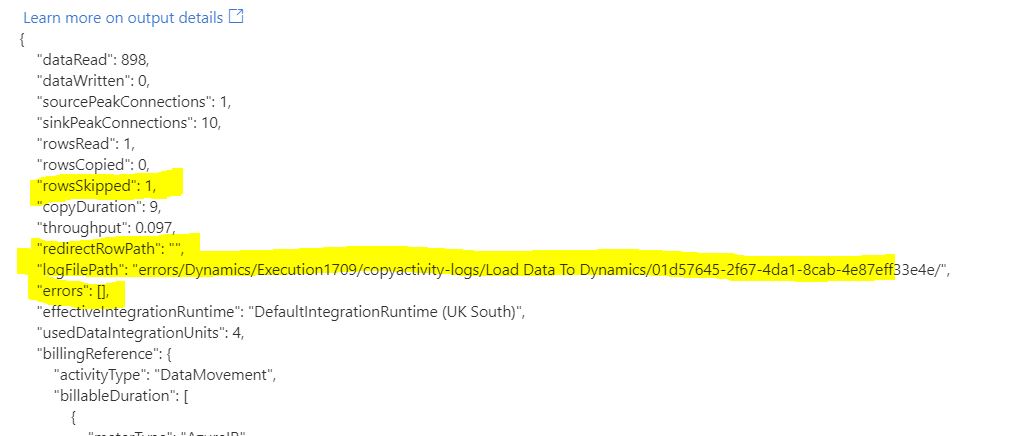Hello @Evans, Matt ,
Thanks for the ask and using the Microsoft Q&A platform .
I did dig into this a bit more and I think you can use the dynamic expression to get the
@activity('Copy data1').output.logFilePath . This is what i tried created a destination table with the datalenth less then tha of source , the idea was to trigger a failure .
CREATE TABLE T1
(
ID INT ,
NAME VARCHAR(10)
)
INSERT into t1 values(1,'Evan')
INSERT into t1 values(2,'John')
INSERT into t1 values(3,'James')
sink
CREATE TABLE T2
(
ID INT ,
NAME VARCHAR**(2)**
)
Added a copy activity to copy data from source sink and enabled fault tolerance .Create a variable to capture the log file path ( this is not required but I kept to clarity )
Added one more copy activity , the intend here is to copy the date from the blob to a SQL logging . I used the dataset parameter and passed the value of the log file . Below animation should make that more clear ,
I agree that the data in SQL is not in perfect format , but its something i was able to work around
select * from dbo.logging
where operationItem is not null
Animation : https://imgur.com/a/EFCoii6
Please do let me know how it goes .
Thanks
Himanshu
Please do consider to click on "Accept Answer" and "Up-vote" on the post that helps you, as it can be beneficial to other community members


